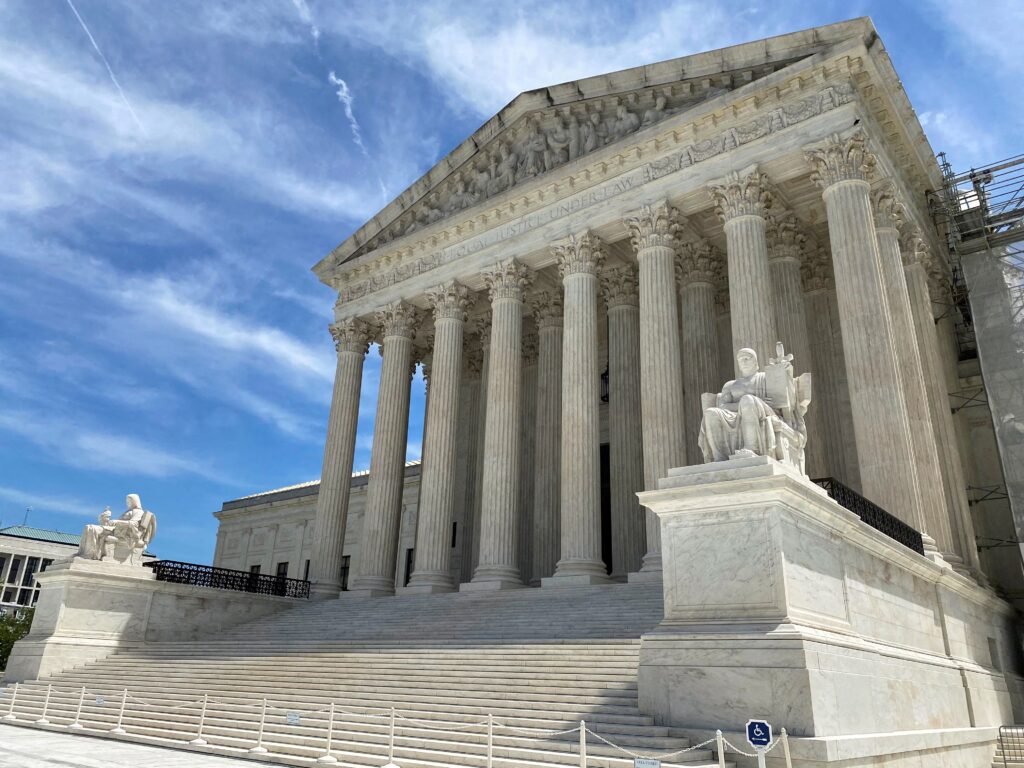US Supreme Court limits power of judges to block Trump’s birthright citizenship order

In a significant ruling on presidential authority and judicial limits, the U.S. Supreme Court on Friday curtailed the power of federal judges to issue sweeping injunctions, delivering a procedural victory to President Donald Trump in his push to restrict birthright citizenship.
In a 6-3 decision authored by Justice Amy Coney Barrett, the court sided with the Trump administration’s request to narrow the nationwide scope of three federal injunctions that had blocked his executive order barring citizenship for children born in the U.S. to non-citizen or non-permanent resident parents.
The ruling did not uphold the legality of Trump’s order but instructed lower courts in Maryland, Massachusetts, and Washington to reconsider the breadth of their rulings. The justices emphasized that Trump’s directive cannot be enforced for at least 30 days following the decision.
“No one disputes that the Executive has a duty to follow the law. But the Judiciary does not have unbridled authority to enforce this obligation,” Barrett wrote, signaling the majority’s view that courts had overstepped their reach.
A Controversial Executive Action
Trump’s order, issued on his first day back in office, represents one of the most aggressive challenges to the 14th Amendment in modern history. If implemented, it would deny automatic citizenship to over 150,000 U.S.-born children each year, according to estimates by advocacy groups and Democratic state attorneys general who have challenged the directive.
The 14th Amendment, ratified in 1868, grants citizenship to “all persons born or naturalized in the United States.” Trump’s administration, however, argues that this clause was meant only to include children of U.S. citizens or permanent residents, not undocumented immigrants or those on temporary visas.
Legal and Political Backlash
Opponents of the policy, including 22 Democratic attorneys general and multiple immigration groups, argue that the executive order blatantly violates constitutional protections and the long-standing interpretation of the 1898 case United States v. Wong Kim Ark, which affirmed citizenship rights for children born on U.S. soil, regardless of their parents’ status.
In oral arguments before the court in May, U.S. Solicitor General D. John Sauer claimed the 14th Amendment was originally intended to cover only the children of formerly enslaved people, not foreign nationals lacking permanent ties to the country.
The Trump administration has maintained that lower courts went too far by blocking the order nationwide, arguing that such “universal” injunctions interfere with the executive branch’s ability to govern.
Public Opinion and Political Implications
According to a Reuters/Ipsos poll conducted June 11–12, only 24% of Americans support ending birthright citizenship, while 52% oppose the move. The divide is starkly partisan: just 5% of Democrats support the measure, compared to 43% of Republicans.
The Supreme Court’s conservative majority has generally supported Trump’s immigration agenda since his return to the White House in January. Earlier this week, the court allowed the administration to resume deportations of migrants to third countries without hearings. However, it also blocked the use of an 18th-century wartime law to expel Venezuelan migrants without due process.
The Broader Legal Debate
This ruling is the latest chapter in a broader effort to curtail judicial tools like nationwide injunctions, which have been used by courts to halt controversial policies under both Republican and Democratic administrations. Critics of these injunctions argue they undermine the balance of power; supporters see them as a necessary safeguard against executive overreach.
As the legal battle over birthright citizenship continues, the Supreme Court has yet to rule on the constitutional merits of Trump’s directive — a decision that could reshape the American understanding of citizenship itself.
By Staff Writer, Courtesy of Forbes | June 27, 2025 | Edited for WTFwire.com
Source: Reuters
: 280







